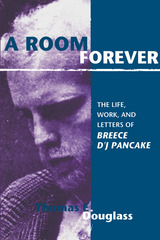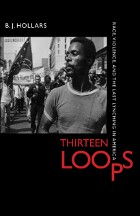2 books about -1979

A Room Forever
The Life, Work, Letters Of Breece D'J Pancake
Thomas E. Douglass
University of Tennessee Press, 1998
After twenty-six-year-old author Breece D'J Pancake took his own life in April 1979, the West Virginian's posthumously published short-story collection made a considerable impact on the world of letters. His work was praised for a controlled muscular style reminiscent of Hemingway, for its strong undercurrent of emotion, and for its evocation of the blighted lives of the mountain poor. In A Room Forever, Thomas E. Douglass offers a detailed portrait of Pancake's short life, examining the varied circumstances and emotional forces that led to the writer's suicide and exploring Pancake's influence on contemporary fiction generally and Appalachian writing in particular.Drawing on notebooks, letters, and manuscripts left by Pancake as well as numerous conversations and interviews with family, friends, and others, Douglass has recreated the key events of the young artist's life: his West Virginia childhood, his romantic losses, his education as a writer at the University of Virginia, and the acceptance of his work by the East Coast literary establishment. Through analysis of the story fragments reproduced in this volume, including The Conqueror and Shouting Victory, Douglass illustrates the recurring themes -- such as fear of failure and the inability to escape disaster -- that Pancake expressed so eloquently in his work, and he shows their origins in the writer's own personal history. Douglass examines the degree to which Pancake drew on his memories of life in Appalachia and discusses Pancake's influence on other Appalachian writers such as Pinckney Benedict. Douglass argues that Pancake's posthumous collection, The Stories of Breece D'J Pancake, brought a renewed interest in regional writing to the national literary scene. A Room Forever brings to life the artistic sensibility and inner turmoil of a legendary figure in contemporary southern letters.
[more]

Thirteen Loops
Race, Violence, and the Last Lynching in America
B. J. Hollars
University of Alabama Press, 2011
Thirteen Loops: Race, Violence, and the Last Lynching in America recounts the story of three innocent victims, all of whom suffered violent deaths through no fault of their own: Vaudine Maddox in 1933 in Tuscaloosa, Sergeant Gene Ballard in 1979 in Birmingham, and Michael Donald in 1981 in Mobile.
The death of Vaudine Maddox—and the lynchings that followed—serves as a cautionary tale about the violence that occurred in the same region nearly fifty-years later, highlighting the cowardice, ignorance, and happenstance that sustained a culture of racial intolerance far into the future.Nearly half a century later, after a black bank robber was acquitted for the murder of police Sergeant Gene Ballard, two Klansmen took it upon themselves to exact revenge on an innocent victim--nineteen-year-old African American Michael Donald. Donald's murder--deemed the last lynching in America--reignited the race debate in America and culminated in a courtroom drama in which the United Klans of America were at long last put on trial.
While tracing the relationships among these murders, B. J. Hollars's research led him deep into the heart of Alabama’s racial, political, and legal landscapes. A work of literary journalism, Thirteen Loops draws upon rarely examined primary sources, court documents, newspaper reports, and first-hand accounts in an effort to unravel the twisted tale of a pair of interconnected murders that forever altered United States' race relations.
The death of Vaudine Maddox—and the lynchings that followed—serves as a cautionary tale about the violence that occurred in the same region nearly fifty-years later, highlighting the cowardice, ignorance, and happenstance that sustained a culture of racial intolerance far into the future.Nearly half a century later, after a black bank robber was acquitted for the murder of police Sergeant Gene Ballard, two Klansmen took it upon themselves to exact revenge on an innocent victim--nineteen-year-old African American Michael Donald. Donald's murder--deemed the last lynching in America--reignited the race debate in America and culminated in a courtroom drama in which the United Klans of America were at long last put on trial.
While tracing the relationships among these murders, B. J. Hollars's research led him deep into the heart of Alabama’s racial, political, and legal landscapes. A work of literary journalism, Thirteen Loops draws upon rarely examined primary sources, court documents, newspaper reports, and first-hand accounts in an effort to unravel the twisted tale of a pair of interconnected murders that forever altered United States' race relations.
[more]
READERS
Browse our collection.
PUBLISHERS
See BiblioVault's publisher services.
STUDENT SERVICES
Files for college accessibility offices.
UChicago Accessibility Resources
home | accessibility | search | about | contact us
BiblioVault ® 2001 - 2024
The University of Chicago Press









